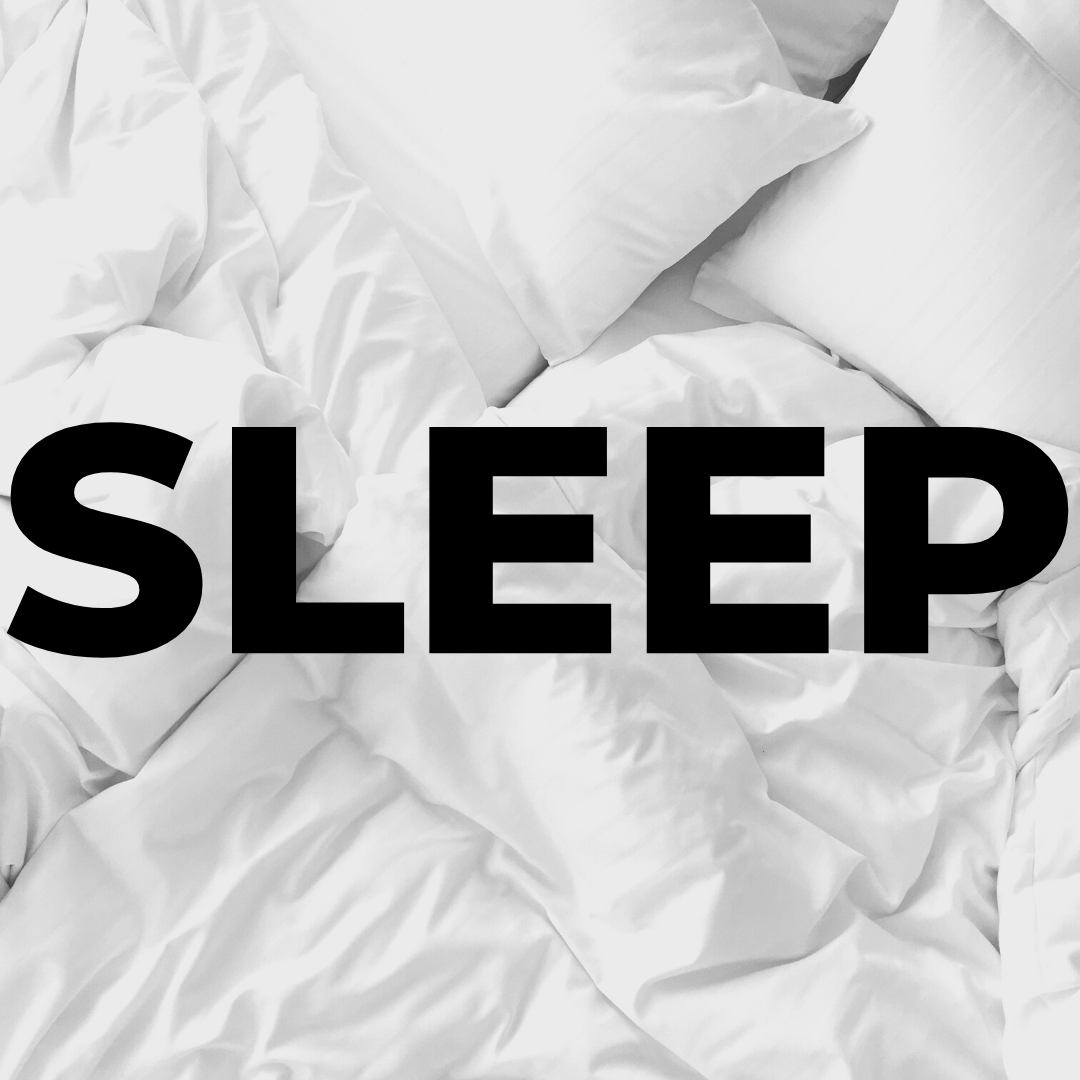Sleep is one of the most important activities you participate in everyday, other than breathing.
Have you ever thought about the value of sleep and the impact lack of quality rest has on one’s life? By definition, the word “sleep” means a period of rest for the body and mind, during which volition and consciousness are in abeyance and bodily functions are partially suspended; also described as a behavioral state, with characteristic immobile posture and diminished but readily reversible sensitivity to external stimuli. Wow! Sounds very complex doesn’t it? Proper sleep is so vital to one’s health that without a proper pattern one’s quality of life is diminished. Regular amounts of sleep are vital to your health, happiness, social life and success.
What could be contributing to my poor quality of sleep?
That can be easy to pinpoint in certain scenarios and harder in others. Consider where you live…is there a lot of outside noise at night that when you are awake you have learned to block out? Do you have a partner that shares a bed with you? Do they have bad sleeping habits, like tossing and turning, snoring, talking, etc.? I have included a list of examples that can impact your quality of sleep, but there are far more reasons out there.
- Sleep disrupting light, sleeping with a light on, lights shining through window or from other room
- Stress/Anxiety
- Strange work schedules, such as working night shift one week and day the next
- Pain
- Medications and other substances (caffeine, sugar, drugs and alcohol)
- Sleep Disorders
If you do not believe a medical condition to be the cause of your poor rest, then I would recommend you look into your sleeping environment for the cause. Read on to learn what symptoms can be present with sleeping disorders, like Obstructive Sleep Apnea. You may be surprised that a family member, or even yourself has been living with a Sleep Breathing Disorder for quite sometime.

Someone suffering from a sleep disorder may exhibit one or more of the following symptoms:
- Snoring
- Sleepier than expected during the day
- Problems falling asleep
- Trouble staying asleep
- Clenches and grinds teeth while asleep
- Moves around a lot while sleeping
- Sleepwalks or talks in sleep
- Has frequent nightmares
- Poor concentration
- Behavioral problems in school
- Memory problems
If you or anyone you know suffers from these symptoms it might be time to have a consultation with a specialist. The majority of people with sleep disturbances clench and grind their teeth in search of proper air. Many times this habit known as “Bruxism” goes unnoticed. It is very common for people to have anatomical constriction associated with breathing. As a result, the brain tells the teeth to grind together and move around in order to widen the space for air to pass through.
Some causes of constricted airway space include:
- Large tonsils
- Forward posturing of the neck
- TMJ Disorder
- Whiplash/Neck Trauma
- Missing back teeth
- Under developed mandible (lower jaw)
- Overly large tongue
- Narrow maxilla (upper jaw)
- Facial trauma
Most people I treat with TMJ disorders almost always present with sleep disorders as well. The body will do whatever it has to in order to breath in air. This normally includes clenching and grinding the teeth to find a path for air to pass through.
What do your sleeping habits say about the quality of rest you are getting?
Sleeping on one’s side or tossing and turning while asleep. Posturing the neck and lower jaw forward are also common habits people have in order to open the airway space near the back of the throat. Breathing through the mouth is also a very good sign that someone suffers from an airway constriction during rest.
A receded lower jaw (mandible) with a large overjet of the upper front teeth normally appears in people who have sleep disturbances and can usually be detected in very young children. Treatment for sleep disorders can vary depending on the accuracy of the diagnosis. Many people with sleep disorders benefit from orthotic sleep appliances that fit securely over the teeth. Other methods of treatment may be beneficial as well depending on the results of a professional sleep study. A complete dental evaluation of how the teeth occlude together along with a TMJ examination will aid in a complete and proper diagnosis of most types of sleep disorders.
With today’s diagnostic imaging technology, along with a thorough clinical evaluation, many people are living life better than ever before simply by solving airway obstruction problems. Therefore, you should pay close attention to the symptoms mentioned above and if you or your loved ones suffer from any form of disturbance while you are resting, I recommend you seek a consultation and evaluation. A well trained dentist who focuses on TMJ and airway space disorders is a great starting point!
Read more about disorders that can affect your rest: Obstructive Sleep Apnea
Yours for Better Health,
Dr. Christine R. Wenrick

106 replies on “Sleep and its role in the quality of your life…”
cialis denmark
cialis denmark
mexico online pharmacy reviews
mexico online pharmacy reviews
giant eagle pharmacy hours
giant eagle pharmacy hours
is tadalafil and cialis the same thing?
is tadalafil and cialis the same thing?
viagra cost usa
viagra cost usa
use cialis promise coupon orlando fl
use cialis promise coupon orlando fl
sildenafil 100 coupon
sildenafil 100 coupon
best online pharmacy vicodin
best online pharmacy vicodin
cheapest cialis india
cheapest cialis india
female viagra pill otc
female viagra pill otc
get viagra without prescription
get viagra without prescription
online rx viagra
online rx viagra
cheap viagra australia fast delivery
cheap viagra australia fast delivery
viagra soft pills
viagra soft pills
viagra mastercard
viagra mastercard
cialis online canada paypal
cialis online canada paypal
cialis paypal canada
cialis paypal canada
adcirca vs cialis
adcirca vs cialis
prasco tadalafil
prasco tadalafil
sulfamethoxazole trimethoprim oral
sulfamethoxazole trimethoprim oral
gabapentin nistagmo
gabapentin nistagmo
metronidazole lek
metronidazole lek
mexican nolvadex
mexican nolvadex
pregabalin drug
pregabalin drug
valtrex claritin
valtrex claritin
glucophage argentina
glucophage argentina
terazosin lisinopril
terazosin lisinopril
furosemide ipopotassiemia
furosemide ipopotassiemia
switching from rybelsus to mounjaro
switching from rybelsus to mounjaro
rybelsus tabl. 0 003 g
rybelsus tabl. 0 003 g
semaglutide injection price
semaglutide injection price
zoloft
zoloft
tinidazole metronidazole
tinidazole metronidazole
ketamine-baclofen-cyclobenzaprine-diclofenac-gabapentin-lidocaine cream
ketamine-baclofen-cyclobenzaprine-diclofenac-gabapentin-lidocaine cream
duloxetine tricyclic
duloxetine tricyclic
lexapro side effects in men
lexapro side effects in men
viagra 10mg price in india
viagra 10mg price in india
keflex for uti reviews
keflex for uti reviews
таблетки escitalopram
таблетки escitalopram
cymbalta tardive dyskinesia
cymbalta tardive dyskinesia
is fluoxetine a benzodiazepine
is fluoxetine a benzodiazepine
cephalexin and sun
cephalexin and sun
ciprofloxacin side effects in elderly
ciprofloxacin side effects in elderly
side effects of cephalexin
side effects of cephalexin
half life of bactrim
half life of bactrim
bactrim suspension dosage chart
bactrim suspension dosage chart
does amoxicillin treat a uti
does amoxicillin treat a uti
diltiazem dose
diltiazem dose
maximum flomax dosage
maximum flomax dosage
augmentin for ear infection
augmentin for ear infection
contrave yeast infection
contrave yeast infection
ddavp teszt von willebrand
ddavp teszt von willebrand
diclofenac sodium topical
diclofenac sodium topical
cozaar 50 mg side effects
cozaar 50 mg side effects
ezetimibe rhabdomyolysis
ezetimibe rhabdomyolysis
is effexor a controlled substance
is effexor a controlled substance
flexeril while pregnant
flexeril while pregnant
citalopram 40mg
citalopram 40mg
depakote tremors
depakote tremors
aripiprazole 2 mg side effects
aripiprazole 2 mg side effects
does advil contain aspirin
does advil contain aspirin
when to take allopurinol
when to take allopurinol
amitriptyline max dose for pain
amitriptyline max dose for pain
celebrex for pain and inflammation
celebrex for pain and inflammation
bupropion side effects
bupropion side effects
celexa pregnancy
celexa pregnancy
buspar mechanism of action
buspar mechanism of action
what are the side effects of baclofen
what are the side effects of baclofen
can augmentin cause a yeast infection
can augmentin cause a yeast infection
celecoxib side effect
celecoxib side effect
protonix indications
protonix indications
acarbose sigma
acarbose sigma
nebivolol lactose
nebivolol lactose
semaglutide 5mg vial dosage
semaglutide 5mg vial dosage
does robaxin get you high
does robaxin get you high
remeron for appetite
remeron for appetite
abilify withdrawal symptoms
abilify withdrawal symptoms
repaglinide uv absorbance
repaglinide uv absorbance
sitagliptin to linagliptin conversion
sitagliptin to linagliptin conversion
stromectol ivermectin 3 mg
stromectol ivermectin 3 mg
voltaren gel used for what
voltaren gel used for what
50 mg spironolactone acne reddit
50 mg spironolactone acne reddit
ic tamsulosin hcl 0.4 mg capsule
ic tamsulosin hcl 0.4 mg capsule
can i take a sleep aid with venlafaxine
can i take a sleep aid with venlafaxine
tizanidine hcl 4mg street value
tizanidine hcl 4mg street value
synthroid gynecomastia
synthroid gynecomastia
sildenafil oral jelly 100mg kamagra
sildenafil oral jelly 100mg kamagra
buy levitra with prescription
buy levitra with prescription
cialis online pills
cialis online pills
buy levitra 20mg online
buy levitra 20mg online
tadalafil 20mg how long before sex
tadalafil 20mg how long before sex
sildenafil 25 mg
sildenafil 25 mg
pharmacy rx one legitimate
pharmacy rx one legitimate
can you buy viagra in pharmacy
can you buy viagra in pharmacy
best otc female viagra
best otc female viagra
sildenafil vardenafil tadalafil
sildenafil vardenafil tadalafil
cost of ivermectin 1% cream
cost of ivermectin 1% cream
ivermectin 250ml
ivermectin 250ml
tadalafil package insert
tadalafil package insert
ivermectin buy
ivermectin buy
generic over the counter viagra
generic over the counter viagra
ivermectin generic name
ivermectin generic name
vardenafil vs tadalafil
vardenafil vs tadalafil
ivermectin pill cost
ivermectin pill cost
generic stromectol
generic stromectol
where can i buy tadalafil online
where can i buy tadalafil online